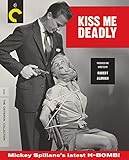1.
Before we get to the pratfalls, some edifying poetry. Seldom do we walk in beauty, “like the night / Of cloudless climes and starry skies,” or move as fluidly as Robert Herrick’s Julia: “Whenas in silks my Julia goes, / Then, then, methinks, how sweetly flows / That liquefaction of her clothes.” (Should Don Draper land a women’s fashion line in Mad Men’s final season, he’ll have his pitch.) We are too ungainly for such elegance and more like Maxwell, one of a hundred siblings in Donald Antrim’s The Hundred Brothers, who stumbles into and breaks things “at a rate of about one electrical fixture, decorative serving dish, potted plant, or item of statuary every three days.” And we are too harried and with limbs too extended for the virtuous compression, contractility, and “absence of feet” lauded by Marianne Moore in “To a Snail.” By contrast, our walking is a kind of Carrollian galumphing, which, however silly, can have its own comic grace: Charlie Chaplin’s iconic shuffle or the springy jaunts of Jacques Tati, slightly hunched over like a detective hunting for clues to the strange modern world whose machinery he so often fouls up.
 Film and television are best suited to exploit walking’s comic potential, and the flexible comedian best suited to perform the “mechanical inelasticity” Henri Bergson identified as a central feature of the comic. For example, in the famed Monty Python sketch “Ministry of Silly Walks” there is a certain regularity even in John Cleese’s most spastic contortions, his body transformed into a series of independently operating parts instead of an organic whole. Or take Seinfeld’s Cosmo Kramer, whose jerky rhythms make him a walking illustration of “something mechanical encrusted onto the living;” he bursts through doors as if powered by a nitrous boost. But what of funny gaits in literature? If there is something mechanical in comic walks, can novelistic descriptions capture their magic, or will they merely read like operator manuals?
Film and television are best suited to exploit walking’s comic potential, and the flexible comedian best suited to perform the “mechanical inelasticity” Henri Bergson identified as a central feature of the comic. For example, in the famed Monty Python sketch “Ministry of Silly Walks” there is a certain regularity even in John Cleese’s most spastic contortions, his body transformed into a series of independently operating parts instead of an organic whole. Or take Seinfeld’s Cosmo Kramer, whose jerky rhythms make him a walking illustration of “something mechanical encrusted onto the living;” he bursts through doors as if powered by a nitrous boost. But what of funny gaits in literature? If there is something mechanical in comic walks, can novelistic descriptions capture their magic, or will they merely read like operator manuals?
 Our literary ramble will not include docented tours through Thomas Hardy’s Wessex and Charles Dickens’s London; nor the strolls in Jane Austen novels during which much is usually decided; nor the flâneur, whose beguiling circumflex and suggestive treatment by Charles Baudelaire and Walter Benjamin prove him too alluring a figure to resist constant theorization; nor the memory-inducing peregrinations in Teju Cole’s Open City, Will Self’s Psychogeography or W.G. Sebald’s The Rings of Saturn. Rather, our route will include those walks that are less picturesque, less momentous, less worthy of remembrance, those that in their sheer absurdity inspire derision rather than aesthetic revelation. While they can never equal the sublime physical comedy of the Monty Python sketch, these walks still complicate the relatively simple task of putting one foot in front of the other, which is after all what poetry and rhapsodic prose are about: “Lo-lee-ta: the tip of the tongue taking a trip of three steps down the palate to tap, at three, on the teeth. Lo. Lee. Ta.”
Our literary ramble will not include docented tours through Thomas Hardy’s Wessex and Charles Dickens’s London; nor the strolls in Jane Austen novels during which much is usually decided; nor the flâneur, whose beguiling circumflex and suggestive treatment by Charles Baudelaire and Walter Benjamin prove him too alluring a figure to resist constant theorization; nor the memory-inducing peregrinations in Teju Cole’s Open City, Will Self’s Psychogeography or W.G. Sebald’s The Rings of Saturn. Rather, our route will include those walks that are less picturesque, less momentous, less worthy of remembrance, those that in their sheer absurdity inspire derision rather than aesthetic revelation. While they can never equal the sublime physical comedy of the Monty Python sketch, these walks still complicate the relatively simple task of putting one foot in front of the other, which is after all what poetry and rhapsodic prose are about: “Lo-lee-ta: the tip of the tongue taking a trip of three steps down the palate to tap, at three, on the teeth. Lo. Lee. Ta.”
2.
 Some genealogical background is perhaps necessary at the outset. The greatest comic writer of the Greek tradition, Aristophanes, envisioned our ancestors as four-legged creatures capable of some dazzling acrobatics. Speaking in Plato’s Symposium, he explains that:
Some genealogical background is perhaps necessary at the outset. The greatest comic writer of the Greek tradition, Aristophanes, envisioned our ancestors as four-legged creatures capable of some dazzling acrobatics. Speaking in Plato’s Symposium, he explains that:
They walked upright as now, in whichever direction they liked; and when they wanted to run fast, they rolled over and over on the ends of the eight limbs they had in those days, as our tumblers tumble now with their legs straight out.
A wrathful Zeus eventually cleaves humans in two, leaving us with half our original balance to pursue our romantic search for our missing halves. Aristophanes’s myth also goes a long way towards explaining the limitations of our two-legged gymnasts, who, because of their woefully inadequate anatomy, must pad their floor routines with pointless writhing in between tumbling passes.
If we are literally half the men we used to be, we are also fallen walkers, as our greatest epic poet, John Milton, made clear in his poem about our fall. Satan was a bold walker. Only he answers the call of the fallen angel Beelzebub: “…who shall tempt with wandering feet / The dark unbottomed infinite abyss/ and through the palpable obscure find out/ His uncouth way…?” Find his way — and tempt — Satan does; as a result, the poem famously ends as Adam and Eve “with wandering steps and slow, through Eden took their solitary way.” Fallen man has stumbled across the globe in various undignified strides ever since, from E.E. Cummings’s drunken “big wobbly foot-steps,” to Prufrock scuttling across the silent seas or doddering along the beach with his trousers rolled, to Malvolio, “a rare turkey-cock” in yellow stockings and cross garters who “jets under his advanced plumes,” to Samuel Beckett’s Watt, who, in a clear Miltonic echo, experiences a “manifest repugnancy” each time his feet leave the ground for the “air’s uncharted ways.”
 Jonathan Swift’s Laputans best them all with a method so ridiculous that it requires two people to execute. In Gulliver’s Travels, Swift satirizes the head-in-the-clouds quality (literally, given that the island floats above ground) of a race overly devoted to speculative thought. They are a “clumsy, awkward and unhandy people,” at least when it comes to practical considerations and anything not involving astronomical calculations. The frequently cuckholded men are so absorbed in their intellectual pursuits that if presented with a suitably absorbing scientific treatise, they will pay no attention to their wives carrying on with their sublunary lovers in the very same room (providing an explanation for the island’s name that Gulliver’s etymological investigations overlook.) But faithless wives are the least of their problems; the men can’t even walk straight without a servant called a flapper (a climenole in Laputan) walking next to them with a stone-filled bladder tied to the end of a stick. To what end?
Jonathan Swift’s Laputans best them all with a method so ridiculous that it requires two people to execute. In Gulliver’s Travels, Swift satirizes the head-in-the-clouds quality (literally, given that the island floats above ground) of a race overly devoted to speculative thought. They are a “clumsy, awkward and unhandy people,” at least when it comes to practical considerations and anything not involving astronomical calculations. The frequently cuckholded men are so absorbed in their intellectual pursuits that if presented with a suitably absorbing scientific treatise, they will pay no attention to their wives carrying on with their sublunary lovers in the very same room (providing an explanation for the island’s name that Gulliver’s etymological investigations overlook.) But faithless wives are the least of their problems; the men can’t even walk straight without a servant called a flapper (a climenole in Laputan) walking next to them with a stone-filled bladder tied to the end of a stick. To what end?
This flapper is likewise employed diligently to attend his master in his walks, and upon occasion to give him a soft flap on his eyes, because he is always so wrapped up in cogitation, that he is in manifest danger of falling down every precipice, and bouncing his head against every post, and in the streets, of jostling others or being jostled himself.
On whether ‘tis nobler in the mind to be swatted in the face or to trip over a bush, the Laputans have made their choice. To compare these absent-minded Laputans to the phone-toting distracted drivers of today is less facile than it might seem given that Swift’s robed philosophers are steering not a car but an entire island, which they are only too happy to transform into a weapon should any of their terrestrial colonies rebel.
 On the subject of eccentric husbands, I’ve always been struck by the masterful comic portrait of To the Lighthouse‘s Mr. Ramsay and his “firm military tread,” a comedy that could get lost amidst Mrs. Ramsay’s — and the novel’s — “delicious fecundity.” Before his wife’s flashing needles give him a much needed “spray” of confidence, Ramsay, variously described as a tyrannical, pathetic, and magisterial figure, is most likely to be found marching on the front lawn and loudly declaiming Tennyson. At one point he almost barges into the painter Lily Briscoe’s work station:
On the subject of eccentric husbands, I’ve always been struck by the masterful comic portrait of To the Lighthouse‘s Mr. Ramsay and his “firm military tread,” a comedy that could get lost amidst Mrs. Ramsay’s — and the novel’s — “delicious fecundity.” Before his wife’s flashing needles give him a much needed “spray” of confidence, Ramsay, variously described as a tyrannical, pathetic, and magisterial figure, is most likely to be found marching on the front lawn and loudly declaiming Tennyson. At one point he almost barges into the painter Lily Briscoe’s work station:
Indeed, he almost knocked her easel over, coming down upon her with his hands waving shouting out, “Boldly we rode and well,” but, mercifully, he turned sharp, and rode off, to die gloriously she supposed upon the heights of Balaclava. Never was anybody at once so ridiculous and so alarming. But so long as he kept like that, waving, shouting, she was safe; he would not stand still and look at her picture.
Were he not tilting at easels on a sparsely populated island in the Hebrides, Mr. Ramsay could be institutionalized for such behavior, eminent philosopher or not. After Mrs. Ramsay’s death, a flustered Lily, now more cognizant of Mr. Ramsay’s pathos, can only think to praise his beloved boots when he comes to her so that she might “solace his soul.” She praises them so effectively — and Mr. Ramsay responds with such longwinded vigor — that “they had reached, she felt, a sunny island where peace dwelt, sanity reigned and the sun for ever shone, the blessed island of good boots.” Perhaps this blessed island is some version of the lighthouse rock reached by Mr. Ramsay and his children at novel’s end. After sailing over with his legs curled up underneath him like an invalid, Mr. Ramsay springs vigorously ashore, a distinctly non-comic version of the heroic stride that was so ridiculous earlier.
 The protagonist of John Kennedy Toole’s A Confederacy of Dunces is less lucky than Mr. Ramsay with his footware. The “lumbering, elephantine” Ignatius J. Reilly is “ready to burst from his swollen suede desert boots” as the novel begins, proving Mr. Ramsay’s contention that bootmakers “make it their business…to cripple and torture the human foot.” Reilly’s being is “not without its Proustian elements,” perhaps because he didn’t learn to walk in “an almost normal” manner until he was five years old. The obese waddle is a comic staple, but Reilly’s particular locomotive delay is key to understanding his “strange medieval mind,” his belief that touring is for degenerates and his reactionary desire for a “strong monarchy with a decent and tasteful king.” He espouses the concept of Fortuna’s Wheel, not so much because it best explains the vicissitudes of fate but because of its circular rather than linear movement. Here is Reilly walking with his mother down the wet flagstones of Bourbon Street:
The protagonist of John Kennedy Toole’s A Confederacy of Dunces is less lucky than Mr. Ramsay with his footware. The “lumbering, elephantine” Ignatius J. Reilly is “ready to burst from his swollen suede desert boots” as the novel begins, proving Mr. Ramsay’s contention that bootmakers “make it their business…to cripple and torture the human foot.” Reilly’s being is “not without its Proustian elements,” perhaps because he didn’t learn to walk in “an almost normal” manner until he was five years old. The obese waddle is a comic staple, but Reilly’s particular locomotive delay is key to understanding his “strange medieval mind,” his belief that touring is for degenerates and his reactionary desire for a “strong monarchy with a decent and tasteful king.” He espouses the concept of Fortuna’s Wheel, not so much because it best explains the vicissitudes of fate but because of its circular rather than linear movement. Here is Reilly walking with his mother down the wet flagstones of Bourbon Street:
Outside, Mrs. Reilly took her son’s arm for support, but, as much as they tried, they moved forward very slowly, although they seemed to move sideward more easily. Their walking had developed a pattern: three quick steps to the left, pause, three quick steps to the right, pause.
This method does give Reilly ample time to make his case for stopping at a hot dog cart, but it is also emblematic of the retarding effects of the humorous walk, the aim of which is not so much progress but rather a desultory exploration of a place’s comic possibilities — in his case, an exhaustive one, as he has only left the city confines once (disastrously, on a bus to Baton Rouge).
Lurking in Reilly’s aversion to degenerate touring is a pathological attachment to place that is positively Beckettian. Vladimir and Estragon (who has his own problems with boots) panic each time they contemplate leaving their rendezvous spot with Godot, and the protagonist in Company has “covered…some 25,000 leagues or roughly thrice the girdle [of the Earth] and never once overstepped a radius of one from home.” Given that Beckett’s characters are variously buried up to their heads in dirt, stuck in trash cans, mired in the mud, or confined to a jar on the Rue Brançion, we may forget that despite his circumscribed fictional worlds, Beckett is a great comic chronicler of human motion.
 Consider Watt, which recounts the eponymous character’s employ in the house of a shadowy figure, Mr. Knott, who may be even more enigmatic than Godot. The novel begins as Watt journeys to Knott’s house in a “funambulistic stagger” that is both literally and figuratively diverting:
Consider Watt, which recounts the eponymous character’s employ in the house of a shadowy figure, Mr. Knott, who may be even more enigmatic than Godot. The novel begins as Watt journeys to Knott’s house in a “funambulistic stagger” that is both literally and figuratively diverting:
Watt’s way of advancing due east, for example, was to turn his bust as far as possible towards the north and at the same time to fling out his right leg as far as possible towards the south, and then to turn his bust as far as possible towards the south and at same time to fling out his left leg as far as possible towards the north…and so on, over and over again, many many times, until he reached his destination, and could sit down. So, standing first on one leg, and then on the other, he moved forward, a headlong tardigrade, in straight line. The knees, on these occasions, did not bend. They could have, but they did not…
Not the most efficient method, but given that the novel’s most notable event is the arrival of a pair of piano tuners who pronounce the instrument “doomed,” there is no need to rush. Watt’s odd preference for walking “with his back to his destination” is certainly eccentric, but it also displays a certain blind optimism, a faint ember of hope that he will find “the right place, at last.”
To add one final example to our menagerie of walkers, we lurch into an H.P. Lovecraft horror tale and find a stride so inhumanly macabre that it becomes almost comic (as most B-movie adaptations of the Dagon or Cthulhu mythos make clear). “The Shadow Over Innsmouth” betrays a pathological fear of “biological degeneration” that manifests itself in the narrator’s loathing of the Innsmouth natives, those “blasphemous fish-frogs of the nameless design” who hop irregularly through abandoned streets. The tale is partly about an abiding embarrassment over the clumsiness of our ancestors as they crawled forth from the ocean and were literally fish out of water. Aristophanic gymnasts these Innsmouth creatures are not. Fish-like though they may be, their motion at times seems “positively simian.” Particularly noteworthy is their “alien-rhythmed footfalls,” the “dog-like sub-humanness of their crouching gait,” as they surge “inhumanly through the spectral moonlight in a grotesque, malignant saraband of fantastic nightmare.” The narrator feels a growing and uncanny connection to the natives, and thus in a nice touch, he manages to escape partly by imitating their shambling hop. The walk, though feigned, nonetheless reveals a certain truth about his origins. By the end of the tale, and after some timely physiological changes, the narrator becomes a Prufrock with gills who can more than merely fantasize about cavorting with underwater sirens.
And thus we end the walking tour, fittingly, in the “unknown sea-deeps” whence our tetrapod ancestors first emerged to take their uncouth way.
3.
 Several years ago, I attended a screening of Kiss Me Deadly at the Pacific Film Archive in Berkeley. Introducing the film, the critic David Thomson remarked of the peacocking protagonist, private detective Mike Hammer (Ralph Meeker), that you can always tell a fascist by his walk. Thanks to Thomson, I was primed for that strut, at once menacing and ridiculous, which so defines the film’s unsavory hero. Thomson’s comment alerts us to the way the human gait expresses who or what we are. In our tour, which to avoid excessive fatigue has necessarily excluded many a worthy ambler, the silly literary walk has proven to produce more than a good laugh. It can resonate allegorically, produce pathos, reveal character, mirror the world’s absurdity, reflect back on the work that contains it, betray an anxiety of our origins, and even indicate a political affiliation. Regardless, no matter how eccentric the walker, each is welcome on the blessed island of boots, where one can do worse than to emulate this concise description from the “Calypso” chapter of James Joyce’s comic masterpiece: “Dander along all day.”
Several years ago, I attended a screening of Kiss Me Deadly at the Pacific Film Archive in Berkeley. Introducing the film, the critic David Thomson remarked of the peacocking protagonist, private detective Mike Hammer (Ralph Meeker), that you can always tell a fascist by his walk. Thanks to Thomson, I was primed for that strut, at once menacing and ridiculous, which so defines the film’s unsavory hero. Thomson’s comment alerts us to the way the human gait expresses who or what we are. In our tour, which to avoid excessive fatigue has necessarily excluded many a worthy ambler, the silly literary walk has proven to produce more than a good laugh. It can resonate allegorically, produce pathos, reveal character, mirror the world’s absurdity, reflect back on the work that contains it, betray an anxiety of our origins, and even indicate a political affiliation. Regardless, no matter how eccentric the walker, each is welcome on the blessed island of boots, where one can do worse than to emulate this concise description from the “Calypso” chapter of James Joyce’s comic masterpiece: “Dander along all day.”










